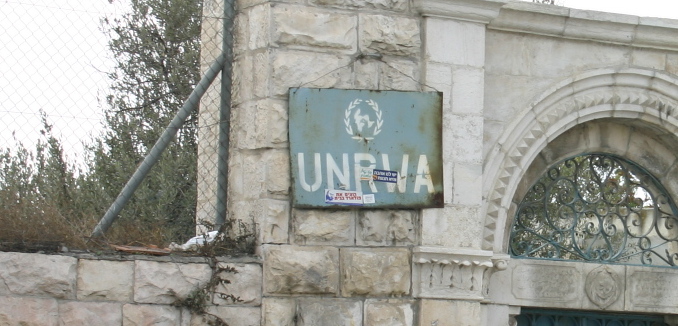French President Macron and German Chancellor Merkel have won accolades for pushing EU members to fight anti-Semitism. That of course could be a good thing. But such high-minded pronouncements are never matched when it comes to the Holocaust-denying, genocide-threatening Iranian regime.
But one European leader, Sebastian Kurz, recently did just that.
As soon as Iranian President Hassan Rouhani had once again denied Israel’s right to exist, the 32-year-old Austrian Chancellor condemned this provocation as “absolutely unacceptable.” Sadly his counterparts in other European nations — many of whom are twice his age — seem to lack Kurz’s moral clarity.
Top German politicians left the recent Rouhani derailment unanswered, and the silence is deafening. I was recently in Berlin, where anti-Semitism is growing stronger, and spoke to top politicians about two issues in particular: Iran and the UN Relief and Works Agency for Palestine Refugees (UNRWA). On both fronts, we see a rhetorical escalation in the attempt to delegitimize the existence of Israel.
First, let’s look at Iran. For many years we saw the Iranian anti-Israel doctrine poison the climate in the Middle East, while European policy towards Iran reeked of appeasement. In Europe’s shadow, Iran continues to pursue a policy of naked self-interest with the ultimate prize of establishing itself as the regional counterbalance to Saudi Arabia — principle guardian of the Shiite faith. Iran’s decisive bridgehead is civil war-torn Syria, whose murderous regime Iran supports with money, arms supplies, and military advisors. In February of this year, the Israeli Air Force intercepted an Iranian drone over the Golan Heights. Without a doubt Iran has burrowed itself in Syria. Never before have Iranian troops stood so close to Israel’s external border. This is in addition to its Lebanese proxy-terrorist Hezbollah which has more rockets aimed at Israel than NATO members possess.
Now for UNRWA.
Following the U.S.’s move to pull support from the group that brainwashes kids on the many “virtues” of martyrdom, German Secretary of State Heiko Maas announced a “substantial” increase in funds from his country to UNRWA. With 100 million euros in aid money, Germany remains one of UNRWA’s largest benefactors. Yes, support for the Palestinians’ quest for a better future is right and important. But Hamas and Palestinian Authority curricula funded by UNRWA amount to textbook child abuse. Nobody I met with in Berlin could assure me that the German money did not directly benefit Hamas.
On our behalf, the Middle East expert Arnon Groiss has examined more than 200 textbooks of the Palestinian Authority with regard to how these materials portray Israel and Jews. He painstakingly examined every textbook used in in East Jerusalem, the West Bank, and Gaza. I can summarize his chilling findings in three words: de-legitimization, demonization, and indoctrination.
I wanted to discuss these issues with Foreign Minister Maas. But his office had no interest in meeting with me. As the largest European economic nation, Germany is optimally positioned to raise its voice against the anti-Semitically-charged hostility towards Israel. The imperatives are obvious: a clear rejection of Iran’s aggressive anti-Israel policy; a systematic review of UNRWA activities and a renewal of Palestinian textbooks; and a rethink of voting behavior that serially demonizes the Jewish state in the U.N. General Assembly. We will continue to pursue these issues and remain in close dialogue with the politicians in Germany who will speak to us.
Last week, there was, at least, a glimmer of hope.
The federal government condemned via Twitter “the unacceptable statements of the Iranian President Rohani … in the strongest terms.” And if the German foreign minister would follow the young Austrian Chancellor’s lead in personally denouncing all expressions of anti-Semitism including and especially Iran, it would be a powerful step in the right direction.
Rabbi Abraham Cooper is the Associate Dean, Director Global Social Action Agenda at the Simon Wiesenthal Center, a leading Jewish human rights organization. Abraham Cooper has been a longtime activist for Jewish and human rights causes. His extensive involvement in Soviet Jewry included visiting refuseniks, helping to open Moscow’s first Jewish Cultural Center, and lecturing at the Soviet Academy of Sciences and the Sakharov Foundation. In 1977, he came to L.A. to help Rabbi Marvin Hier found the Simon Wiesenthal Center, and for three decades Rabbi Cooper has overseen the Wiesenthal Center’s international social action agenda including worldwide antisemitism and extremist groups, Nazi crimes, Interfaith Relations, the struggle to thwart the anti-Israel Divestment campaign, and worldwide promotion of tolerance education. Widely recognized as an international authority on issues related to digital hate and the Internet, Rabbi Cooper was listed in 2017 by Newsweek among the top most influential Rabbis in the United States. To read more of his reports — Click Here Now.









